 After talking about blogging and personal transformation, I dedicated the second half of my talk at the Nuffnang Useful + Beautiful Workshop to offering some advice for aspiring writers.
After talking about blogging and personal transformation, I dedicated the second half of my talk at the Nuffnang Useful + Beautiful Workshop to offering some advice for aspiring writers.
I no longer work full-time as a freelance writer. Monday – Friday I manage the marketing and communications of a local East London charity, while writing and blogging on the side.
When I moved to the UK knowing no one, I was really craving the community and companionship of a 9-5 job (I know, I could hardly believe it myself). I’d been freelance writing for about a year but all of my clients were in Canada, so the exchange rate was making it really difficult to get by on my earnings. The UK freelance market looked really healthy, but I had no network here at that point. I knew that getting a full-time job was the best way to relieve my financial stress, start building a network, and find the community I was craving.
But I know freelance writing is something many people aspire to – whether for their career or a passion project. My experience editing magazines and working as a writer have given me a lot of insight into the current publishing world, so today I wanted to share some tips if you’re just getting started.
“This is the other secret that real artists know and wannabe writers don’t. When we sit down each day and do our work, power concentrates around us. The Muse takes note of our dedication. She approves. We have earned favor in her sight. When we sit down and work, we become like a magnetized rod that attracts iron filings. Ideas come. Insights accrete.” – Steven Pressfield
For anyone pursuing a creative career or dreaming of being an artist, I recommend reading The War of Art by Steven Pressfield. Read it, reread it, and then read it again. It’s that good.
The simple fact is writers write. Probably everyday. There are so many reasons why you might want to write – to make a living, to establish yourself as an expert, or because you have thoughts you can’t keep to yourself. But you’ll never move forward by just talking or thinking about writing. You need to set some goals, create a daily writing practice, and get to it.
Admittedly it can be difficult to know where to begin when your dream is to see your name in print, share your unique wisdom through your favourite publications, and start making a buck from your words. Here’s my advice.
Defining your niche
Just like a good blog has a niche, so should a writer. It’s important to think about exactly what kind of writing you want to do and for what audience. Establishing your niche will help you gain credibility and connect with the right readers, while also keeping you focused. What do you want to achieve with your writing? What do you want to be known for? Start asking yourself what you’re already an expert on or have valuable experience in. Whether it’s traveling luxuriously on a budget or how to make the perfect lemon meringue pie, what are three things you know that most of your friends probably don’t? Who would this information help? Keep drilling down until you’ve defined a clear niche that you feel excited about.
 Building a portfolio
Building a portfolio
You don’t have to be a published author to start building a portfolio, otherwise how would any of us get started? If you blog and your writing niche is going to be similar to your blogging niche, start there. Ask yourself, what are the three blog posts you’re most proud of? Where are the gaps in your portfolio? Start creating content to fill them in. If you’re going to be writing about a topic that doesn’t fit with your blog, look for sites you could guest post on before you start pitching to bigger publications.
Perfecting your pitches
Pitching can be a peculiar and daunting beast until you get the hang of it, so set a goal to pitch a different publication each week or month (whatever feels good for you). When you go about writing your pitch, be sure to pitch a story, not just a subject you want to write on. There needs to be a “so what” – why is this going to be important to their readers? This is the difference between writing about vegan food and writing an article on “How to Transition to a Vegan Diet in 30 Days.”
Editors are busy and get a lot of email, so try to keep the pitch to 300 words or less.
Make sure you explain why you’re the right person to write this particular article – perhaps it’s because of your personal connections (someone you know that you could interview), education, first-hand experience, or something else that gives you a unique angle on the subject.
Find out the name of the editor and address them by name. You likely want to pitch to a subeditor rather than the editor-in-chief. You can find this information on their masthead, website, or through some creative googling.
Write the pitch in the tone of voice you intend to write the article in to give the editor a taste of your style and link to 2 or 3 articles or blog posts you have written that are relevant to the pitch.
If you’re still feeling lost or intimidated, I’d recommend taking Grace Bello’s How to Write a Killer Magazine Pitch class on SkillShare.
Knowing your worth
How much you get paid will vary greatly by the type of article you’re writing, your experience level, and the budget of the publication. Unfortunately there are many places who will take advantage of people willing to write for free. When you’re first building a portfolio, you might want to do some writing for free but I would be selective about the publications – make sure they’re going to help build your credibility and provide exposure that is valuable for you. Eventually, you’ll need to decide what you’re worth and stick to your guns and this will mean saying no to writing opportunities sometimes. To get a clearer on what you should charge for an article, have open conversations with friends in the industry about what you’re all being paid; I’ve found this to be really valuable in terms of blogging and it helps you avoid being taken advantage of.
Find an accountability partners
Whether you’re writing your first book or creating a daily writing practice, finding an accountability partner is valuable for bloggers and budding writers as we don’t have bosses or coworkers to help keep us on track. Find someone with similar goals who you can check in with regularly. My friend Xandra and I email each other daily with a list of blogging tasks we’re going to accomplish that day. It’s great knowing someone else is expecting you to get the work done and to have someone to bounce ideas off of.
These strategies helped me while I was getting my first work as a writer, but ultimately you’ll find your own way through research, trial and error, figuring out what feels good for you and, of course, writing.
Do you have any particular questions about writing you’d like me to address? If you’re already working as a writer, what tips would you add to this list?
Love, fountain pens, & loopy calligraphy,
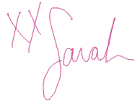
Top photograph by Shell De Mar.
 The life you want is possible and it all starts with learning to adore yourself.
The life you want is possible and it all starts with learning to adore yourself.
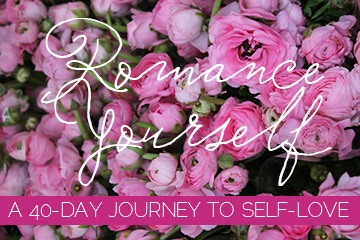
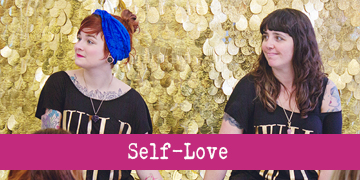



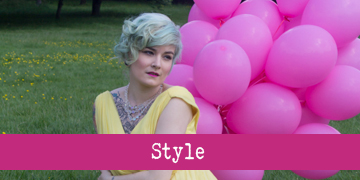




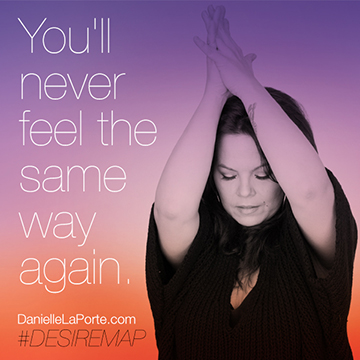

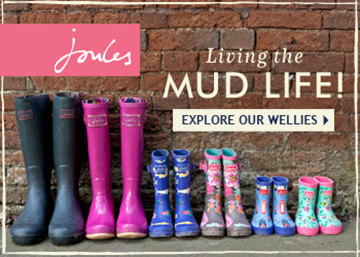





This is such a lovely & helpful post. That daily writing routine is a struggle for me, but one with such intrinsic rewards.
I have found making a living from writing to be such a challenge. After my B.A. I worked as a lifestyle journalist and EA, but was often paid very little. I love blogging for its own sake, but ultimately, I do want my words to be connected to my living. What are your thoughts on freelance journalism vs. blogging vs. copywriting, in terms of actually being able to support oneself?
Hi Cory,
Thank you for your lovely comment. I’m so glad you found the post helpful.
I can certainly understand the difficulty in being paid fairly while working as a journalist – which is why so many people choose to have a side job while they get started, but that brings a whole litany of pros and cons with it.
I think in many ways, a talented copywriter has the easiest time getting paid a decent living versus the somewhat more creative pursuits of lifestyle journalism and blogging. This is simply because there are so many businesses who are going to need this service and they’re willing to pay for said. That being said, it is in no way easy. It’s a competitive world. It takes a very different mindset to write copy than editorial content. And for me, it just isn’t the type of writing that lights me up so I decided not to continue pursuing it.
With blogging, it is unlikely you are going to make a living JUST from your blog content – you’ll need to diversify your income through digital products, affiliate marketing, perhaps offering a service like coaching, or even putting on in-person events. Plus it can take a long time to build up the audience to make these options viable.
All forms of freelance writing are a lifestyle in that they require constant networking, hustling, and honing of our craft. Ultimately where you decide to put your efforts need to reflect where your skills and passion lie, and what you want to get out of it. Obviously there are people making a good living from each one of these pursuits and it’s not just luck. Dedicate yourself to one. Educate yourself as much as you can. Network your butt off. And do the work everyday.
I hope that is somewhat helpful but I’m happy to answer any more specific questions if you have them.
xx
Thank you so much for your response! This is really helpful ( :
Thank you so much for sharing this post!
I have been reading your blog for over a while now, since you lived in Canada, and I absolutely love it.
I remember reading before that you worked as a freelance writer/editor and have always been curious about it. I’m currently studying journalism and so badly want to be a freelance writer myself but I’m too scared to get started.
Since you’ve already worked as one, in Canada, do you mind if I email you some questions about the business?
Many thanks, again, for sharing this amazing post!
Hi Cole,
Thanks so much for your sweet comments. I’d be happy to answer any questions you have, so feel free to email them over. Maybe they’ll even inspire another blog post!
xx
Hey Sarah,
Thanks! I really appreciate it :)